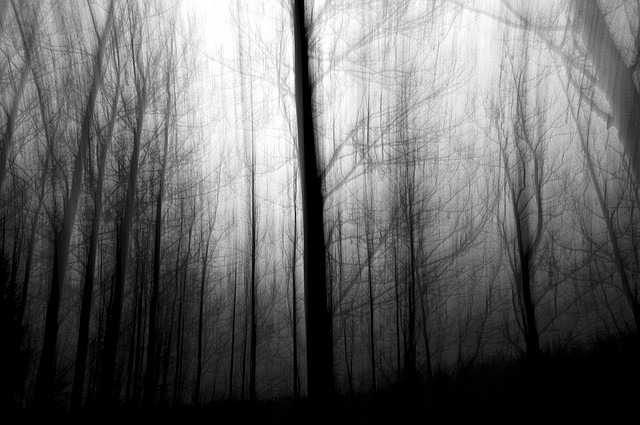I’d like to step away from the relentless discussion of Grossman’s activism and to explain why he hold such a tremendous place for me and many more as an author – and what his last novel to appear in English tells of this country’s future.
David Grossman has a new book coming out today in Israel; it’s Hebrew title translates as “Falling out of Time.” Grossman is a politically contentious figure; to many Israelis, he is too political, while to many activists, he is not political enough. He’s been accused equally of being subversive and of serving the hegemony and normalisation. But on this occasion, I’d like to dwell on Grossman as an author, and try and share why each new book of his feels to me like a momentous development.
There are many writers that suck you into their world; Saul Below draws you into the sonorous, resounding misery of Herzog, Nabokov ties you down with his characters manias and obsessions, Saramagu sweeps you down in a landslide of roaring and rambling phrases, and Nicole Krauss takes you by the hand through the stained-glass intricacy and delicacy of the tragedy of being truly in love.
But Grossman is the only one I’ve read who comes into your world instead, with writing that feels like the the lightest of fingers tracing a slow and winding line under your skin, like the barely graspable and at the same time overwhelming presence of someone both distant and close. Below is a review I was commissioned to write when Grossman’s previous novel, Until The End of Land, came out in Hebrew; it went unpublished for reasons that are too boring and technical to elaborate. I’m sharing it as an illustration of how a book can reach out to you – and because the anxiety and dread that permeate it seem all the more relevant in Israel today.
Until The End of Land
Consider the lives of three human beings, a girl, a boy, then another boy, meeting in the darkness of a Six Day War hospital in Jerusalem. They spend feverish, disease-ridden blackout nights extracting thoughts and details of each other in tiny drops; over the decades spun by the novel, these drops freeze into a connection as intertwined and complicated as twisted metal. These three, Ora, Avram and Ilan, and the two offspring who come to be unknowingly pulsating between them, form the poles between which the literary needlework of Until The End of Land is strung.
The central narrative, sparingly impressed on the back-cover of the book, tells us that same girl, a woman several decades older who’s younger son has volunteered to go into a military operation, finds herself unable to sit at home and play the role of a dutiful receiver to the tidings that she feels confident to come. These are the only tidings Israelis are privileged to have delivered to their doorstep, in the personal and peerlessly impersonal military formality: Three pairs of army boots, tight uniform, an envelope – your son, so and so, while on duty, there and there… Realizing that any minute is the cliched opportune moment for those dispassionate ill-bearers, Ora escapes, running not for her life, but that of her son: If she is not there, she figures, the door will not open, the news will not be delivered, she will not buckle down on the floor of her home, and the entire blood-curdling stageplay will come to a grinding halt.
Recently divorced from Ilan, Ora takes with her Avram, recalling him from a stale pit of forgetfulness, a man sidelined from her own story and her family, twice buried alive. Together, they begin an inverted, spiral journey, dedicated to Ora lovingly recreating, retelling, voicing, and reliving the life of her son, and Avram listening, imagining and thus validating his existence; a loving and defiant inversion of the deal she wouldn’t cut with the faceless arbitrariness that snatched her child away.
For telling the story of Avram, Ora, Ilan and their sons alone – for showing the full horror and gentleness human beings are capable of to each other out of love, self-pity, loneliness and fear – this book would already have earned the label of a masterpiece. The risk here is that the jaded superlative might ring hollow before a record of torn, sewn, twisted and pulsating human lives, tied together so intrinsically that even the kindest, most loving movement in these slender cords causes pain. There is scarcely in the world today another artist who writes as Grossman does, tracing words and their innermost echoes relentlessly under the outer layer of your skin, making the book at times too scorching, too painful to go on reading. Grossman is gifted with a clarity of insight and with the honesty of a chronicler of a human soul nestled in his palm; he is committed to record the most minute details of what he sees, armed with a microscope and an engraver’s pin.
But this clarity would be merciless, sadistic even, if it wasn’t for Grossman’s most distinguishing and disarming attribute. What sets him apart from others who tinker with the inner mechanics of human souls is the kindness and affection with which he envelops his creations. It is this kindness which makes them so close to us and so painful to hold, his ability to make the book breathe intimacy at its readers. The heroine of Amos Oz’s My Michael is pitiful and predatory in her obsession; the wretched madness of the family in Yehoshua’s Late Divorce sticks to you like muck, drawing you in and repulsing you all the more. But Grossman loves his characters, seeing in them forever complete, autonomous, individual human beings, from the lucid transparency of their fingernails and eyelids as newborn children, to the force of the wounds and jolts that they endure; from channeling their joys to us in the most direct and volatile of fashions, to cushioning the horror of twenty years of their solitude and isolation by telling the story from the other end, from the reunion, rediscovery, and the filling of the wounds.
Yet this is not the time, and Grossman is not the author, to cut corners with the darkness through which Ora and Avram tread. Though dotted with brief respites of reunion and recognition, and memories of immaculate joys snatched from the fate to which they have condemned themselves, the life which the characters lead is forever alienated and strained. They are constantly striving for normality and ease and never reaching either, forever wishing for a complete sense of natural, shameless, sinless ownership and knowing it will never come.
And here rolls the dark political undercurrent that turns this book into an epic novel of its time, a late work chronicling the twilight of a state, a state of men and a state of being – comparable in force only, perhaps, to the older Grossman’s Life and Fate. The troubling, never yielding past of the country, the manner in which is was taken and made, maintains a bleak presence throughout the book, from the recurring, nightmarish, guilty thoughts of the Palestinian refugees’ return, to poignant episodes signaling the inevitability of an approaching exile. One of the eeriest episodes of the book, told in an almost off-hand manner, is that of Ora’s present occupation; a collector for a Museum of Israel, to be set up in the United States, charged with collecting “household items of the 1950’s”, working in tandem with several other collectors spread through the country’s sixty years; she doesn’t allow herself to ask why would the establishment of such a museum be necessary in the very near future.
Even the colors of the land through which Ora and Avram travel seems more faded and sombre than in any of Grossman’s earlier books, especialy compared to the lusciousness of the land he loves so warm, vivid and quivering in “Someone to Run With” or “Be My Knife“. In Until the End of Land, the ever-present feeling is that of farewell, of alienation. Rather than drawing them, the land is pursuing our heroes further, not allowing them to stay put at any moment; and simultaneously, it is slipping away under their feet. Even their inverted journey has a grim inevitability to it; starting their journey from Israel’s northern border, they push away from the physical end of the land, but at the same time chart a steady track down south, back to Jerusalem, back to the door and the end which Ora dreads and knows she’ll have to face.
So apart from recounting a heart-rendering tale of five human beings, this book is a document of its time, depicting faithfully the fading pathos and resilience, the doubtfulness and despair and fear of present-day Israel. It’s laden with all that is so closely known to us who live here: From the hopeless conflation of “state” and “land”, the political structure and the physical entity, through the most accurate depiction to-date of life under the threat of bombs, blown truthfully into an overwhelming fear of extinction, and down to a painful sketch of the disdainful subtext of many Jewish-Arab friendships, with privilege and defeat, guilt and righteousness, always lurking underneath even the most cordial of bonds.
The book is not easily placed on either side of the political map: The love of this land too true and faithful to put in on the embittered, alienated Left, the love of the human beings too passionate and honest to slip to the jingoistic Right. The novel doesn’t preach, but lament; and over all rules a feeling of and approaching end, the end of the run, the end of the land. From the darkening, fading setting and the guilty life of the family within it, down even to the relentless progress of the plot,everything in the novel is pointing towards a disintegration and an end. A school play within the novel shows exiles moving across the stage, unrolling a single red thread behind them. Like these exiles, Ora and Avram are unraveling the land they walk, ripping a thread-like tear from the physical end of the land to the end that lies in wait behind Ora’s doorstep.
Edward Said wrote in his last, posthumously published work on literature, On Late Style: “Each of us can readily supply evidence of how it is that late works crown a lifetime of achievement. Rembrandt and Matisse. Bach and Wagner. But what of artistic lateness not as harmony and resolution, but as intransigence, difficulty, and unresolved contradiction?… the experience of late style which involves a nonharmonious, nonserene tension, and above all, a sort of deliberately unproductive productiveness going against”.
A late work of an outstanding Hebrew author, defiant and powerful, pitiful, compassionate and stark, Until the End of Land is a searing elegy of alienation and goodbye.


